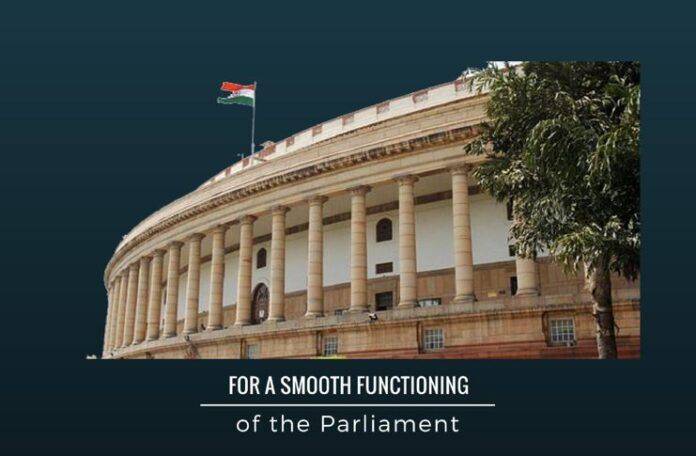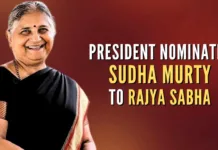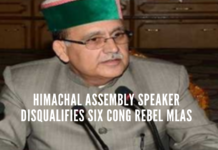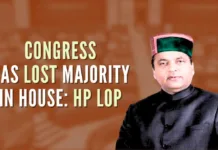
The just-ended Parliament’s winter stood frozen on legislative business. Instead, we had the heat of noise, noise and more noise, resulting in disruptions, making us hang our heads in shame in what’s often dubbed as the world’s largest democracy. In the process, the national chequer frittered away some Rs.30-odd crores of the taxpayers’ money, considering that each minute of Parliament in session costs approximately Rs. 29,000 assuming that the Rajya Sabha “works” for an average five hours a day and the Lok Sabha for six — a total 11 hours for each of the 21 days of disgusting disturbance generated by some 50 or so shameless ones in the total strength 600-odd who claim to be “people’s representatives”. (http://www.ndtv.com/india-news/one-minute-of-parliament-session-costs-rs-29-000-3-days-lost-already-1200054)
One cannot believe that the grassroot freedom fighters of the Constituent Assembly that gave us the Constitution of India with three years of our Independence were unaware of the Indian’s inherent character of acting only for themselves and not for the larger good of the nation. That is why those visionaries gave us a bunch of rules of cultured behaviour of those who were to become elected members of the country’s temple of democracy. Yes, such rules have in fact been laid down in black and white for long.
Below are those rules for the Lok Sabha where 542 Indian citizens get elected from across the country.
Rules to be observed by members in House (Lok Sabha)
Of the 34 Rules and sub-rules, those which need to be red-flagged in the context of the actual in the latest Lok Sabha are given below.
- Whilst the House is sitting, a member—
(ii) shall not interrupt any member while speaking by disorderly expression or noises or in any other disorderly manner;
(viii) shall maintain silence when not speaking in the House;
(ix) shall not obstruct proceedings, hiss or interrupt and shall avoid making running commentaries when another member is speaking
(x) shall not applaud when a stranger enters any of the Galleries, or the Special Box;
(xi) shall not shout slogans in the House
(xiv) shall not wear to display badges of any kind in the House;
(xvi) shall not display flags, emblems or any exhibits in the House;
(xviii) shall not distribute within the precincts of Parliament House any literature, questionnaire, pamphlets, press notes, leaflets, etc. not connected with the business of the House;
(xxi) shall not tear off documents in the House in protest;
- A member while speaking shall not —
(ii) make personal reference by way of making an allegation imputing a motive to or questioning the bona fides of any other member of the House unless it be imperatively necessary for the purpose of the debate being itself a matter in issue or relevant thereto;
(iii) use offensive expressions about the conduct or proceedings of Parliament or any State Legislature;
(v) reflect upon the conduct of persons in high authority unless the discussion is based on a substantive motion drawn in proper terms;
Explanation:-The words ‘persons in high authority’ mean persons whose conduct can only be discussed on a substantive motion drawn in proper terms under the Constitution or such other persons whose conduct, in the opinion of the Speaker, should be discussed on a substantive motion drawn up in terms to be approved by him;
(vii) utter treasonable, seditious or defamatory words;
(viii) use his right of speech for the purpose of obstructing the business of the House.
(x) refer to Government officials by name; and
(xi) read a written speech except with the previous permission of the Chair.
- (1) The Speaker may, if he deems it necessary, name a member who disregards the authority of the Chair or abuses the rules of the House by persistently and willfully obstructing the business thereof.
(2) If a member is so named by the Speaker, the Speaker shall, on a motion being made forthwith put the question that the member (naming him) be suspended from the service of the House for a period not exceeding the remainder of the session:
Provided that the House may, at any time, on a motion being made, resolve that such suspension be terminated.
(3) A member suspended under this rule shall forthwith withdraw from the precincts of the House.
Automatic Suspension of a member
374A. (1) Notwithstanding anything contained in rules 373 and 374, in the event of grave disorder occasioned by a member coming into the well of the House or abusing the Rules of the House persistently and wilfully obstructing its business by shouting slogans or otherwise, such member shall, on being named by the Speaker, stand automatically suspended from the service of the House for five consecutive sittings or the remainder of the session, whichever is less:
Provided that the House may, at any time, on a motion being made, resolve that such suspension be terminated.
(2) On the Speaker announcing the suspension under this rule, the member shall forthwith withdraw from the precincts of the House.
(http://parliamentofindia.nic.in/ls/rules/rules.html)
Rules to be observed by members in House (Rajya Sabha)
The Rules/sub-rules that need highlighting are as below.
- Whilst the Council is sitting, a Member —
(ii) shall not interrupt any Member while speaking by disorderly expression or noises or in any other disorderly manner;
(vii) shall keep to his usual seat while addressing the Council;
(viii) shall maintain silence when not speaking in the Council;
(ix) shall not obstruct proceedings, hiss or interrupt and avoid making running commentaries when speeches are being made in the Council.
(http://rajyasabha.nic.in/rsnew/rs_rule/rules_pro.pdf)
Of the above two sets of Rules and sub-rules, the Lok Sabha Rule 352 (v) and its Explanation given below it makes it abundantly clear that Rahul Gandhi’s threatened “earthquake” (of Richter scale 9 or 10) would simply not have happened because the reins of his tongue were tied by law and its procedure which are too complex for his understanding; even if the Speaker had, after that procedure was somehow complied with (courtesy Kapil Sibal et al), his mouth would have been shut down in two seconds by the Speaker’s powers.
As for the remaining Rules and sub-rules for the MPs when either House is in session, even a quick reading of them make it crystal clear that, instead of commotions, it is the Members’ suspensions which should have swept the recent winter session. It would have done a lot of good to bring the MPs concerned down to earth from their shamelessness.
Ms Sumitra Mahajan, the Lok Sabha Speaker, had indeed done so in August 2015 when she suspended 25 Congress MPs at one go. But the subsequent mass heckling of her in her home possibly unnerved the elderly lady this time around.
Similarly, in May this year, Hamid Ansari, the country’s Vice President and ex-officio Chairman of the Rajya Sabha, had, while speaking in his irritated best, said “Please leave the chamber. Rule 255 has been invoked against you.” He was addressing Trinamool MP Sukhendu Sekhar Roy. But this winter in Parliament, he only got irritated and, without much ado, adjourned the House time and again. He, probably, had become frustrated that his various suggestions from 2013 to bring about a number of radical solutions to maintain decorum did not lead to fruition.
It is abundantly evident now that strict enforcement of Parliamentary rules is a very urgent need of the country. One way to do it is to alter a few rules that impede the legislative business of Parliament. For instance, why must a Member’s demise be the reason for shutting down a House for a whole day?
Mourning at the cost of the taxpayers’ money is abhorrent. Secondly, since the current method of appointing the Speaker of each of the two Houses seems to be a source of embarrassment for those in that Chair, it may well be time to appoint a team of retired High Court judges to the Speaker’s post. They can be certainly expected to be impartial and courageous — provided of, course, that the mode of their selection is itself impartially done through complete transparency subjected to the purview of the Right to Information Act.
- To Editors’ Guild; May we also have our say… please? - July 17, 2019
- Farooq Sahab is either down with dementia or he is a congenital liar? - July 8, 2019
- Shah Bano, Muslims in gutter &Zakaria’s secularism - June 30, 2019











It’s neither the opposition nor the ruling party that is responsible for non functioning Houses, it’s the Speaker and chairperson of LS/RS who are.
There is no reason for them to panic at the first sign of trouble to adjourn houses for some time or for the day.Doors must be closed(as in cinema halls for national anthem), mikes switched off if necessary but no adjournment allowed till closing time/the members see reason or shout themselves till vocal cord paralysis; in any case the country is going to waste money either way but why should there be paid holidays, they must keep sitting through all disturbance, nobody is going to come to physical harm by sitting, so why exhibit escapism from problems.In addition all those who absent themselves even for short periods must be marked absent for the day to lose all benefits.